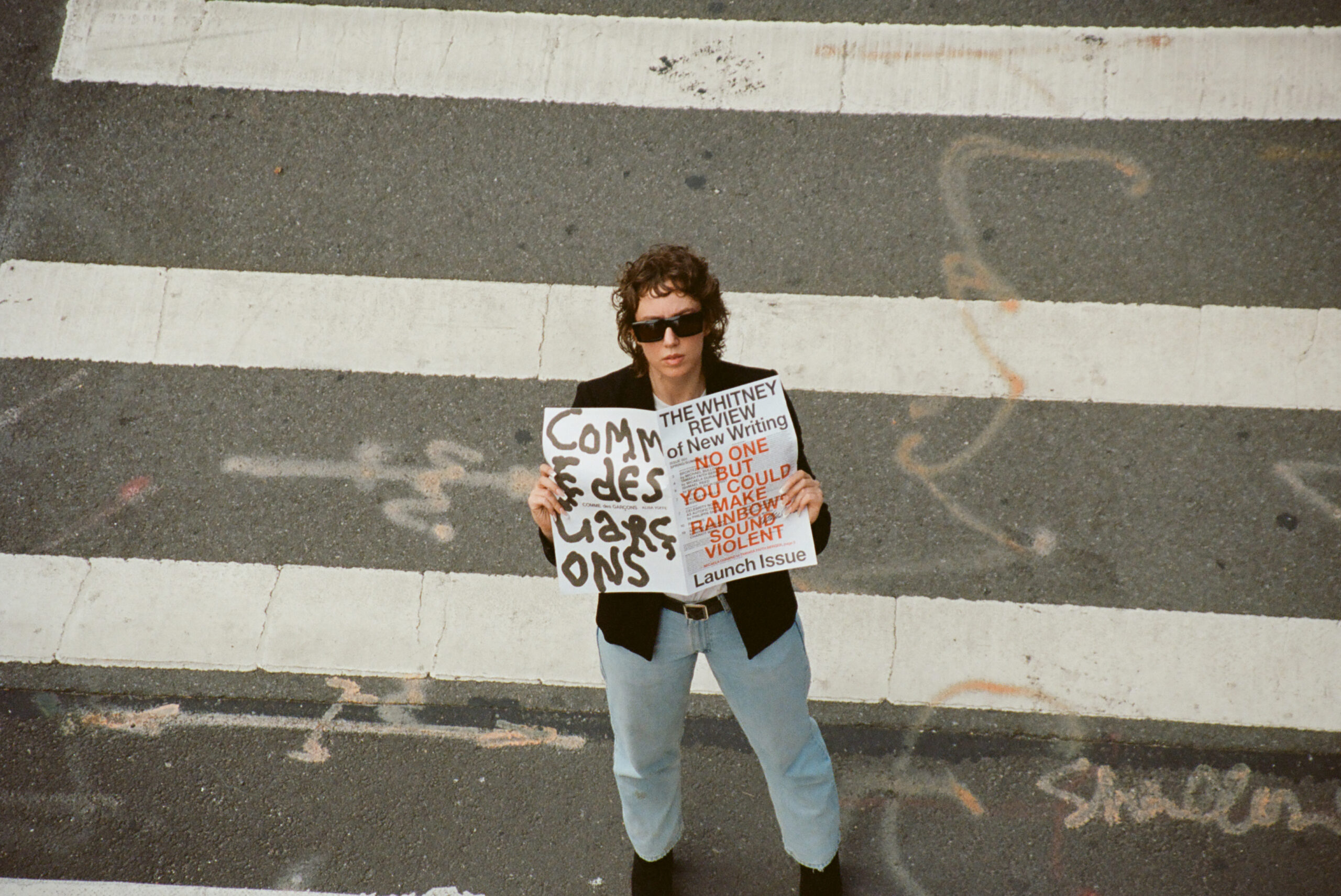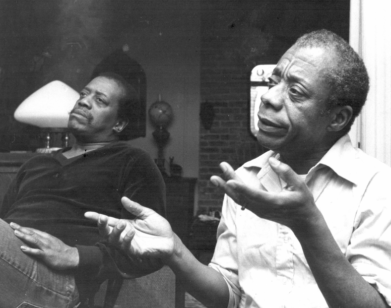LIT
Whitney Mallett Tells Lynne Tillman How She Plans to Save Literary Criticism
“People still read,” says writer Whitney Mallet confidently on a balmy afternoon at an East Village dive bar. Her date, the esteemed novelist and critic Lynne Tillman, agrees, though with a caveat: “Now, people are reading differently.” After co-editing Barbie Dreamhouse: An Architectural Survey, and ushering in the erotica renaissance with “Deliverance,” by Smutburger, Mallett has set her sights on reviving the book review. At last night’s launch of the debut issue of The Whitney Review of New Writing, it was evident that people do, in fact, still read—the biannual newspaper-like review lacks any photography apart from adverts and drew a crowd that dove nose-first into the interviews and short commentaries that fill its 20 pages. “Iconoclastic, but not in a hipster way,” explains Tillman as the pair mused about literary nepotism, the formulaic nature of the mainstream book review, and the recent resuscitation of Bookforum.
———
WHITNEY MALLETT: What were you up to before you came here?
LYNNE TILLMAN: I was relaxing because last night I did a public-private event for Triple Canopy. Rachel Aviv and I discussed our books, and we had a moderator, Rachel Ossip. It was great to reread her book, Strangers to Ourselves. I realized again that rereading is the first reading. But today I just relaxed and I didn’t get up until 11:30. I sort of laid around in a stupor.
MALLETT: It was a beautiful day.
TILLMAN: And I’ve just gotten outside now, so thank you very much.
MALLETT: And you’ve been going upstate too?
TILLMAN: We have a little house upstate. Although we’ve had it for a while, I began to really like it because of COVID. It made me feel very fortunate because it was in a place where I could go for walks while everybody was locked down.
MALLETT: I woke up to the good news that Bookforum was resuscitated.
TILLMAN: Yes, wasn’t it fabulous? I have often felt since it stopped that there’s a lack. But that brings us to book reviewing. What do you think is important about book reviewing?
MALLETT: As someone who has only co-edited one book—you’ve written like, a bajillion books. But when people put so much work into something, you want there to be a discourse. You don’t want to feel like it’s sunk without a trace. And reviews are part of that.
TILLMAN: So much has changed because of the internet. I think most review organs do not actually inspire conversation. It’s very depressing. That’s why it’s so great that Bookforum is coming back and that you’re doing this publication.
MALLETT: The Whitney Review.
TILLMAN: People are going to think it’s the Whitney Museum, which is what I did at first.
MALLETT: Yeah. Intentional.
TILLMAN: Intentional, yes.
MALLETT: But maybe I shouldn’t say that. They’ll sue me.
TILLMAN: “We’re the Whitney. We have purple.”
MALLETT: I mean, it’s the sans-serif font too.
TILLMAN: But there’s no real discussion coming out of those reviews. Maybe the New York Review of Books has that. I got reviewed by them once and it was a comic tragedy, but I haven’t read it.
MALLETT: For the most part, the books I like and the conversations I like are not in that publication. Most of these publications are kind of old school. For instance, now that you have these accolades, they’ll pay attention to you, but they are not paying attention when you’re new and you’re younger. They wait until people are co-signed or have the big machine behind them. I feel very outside that world. And there’s a style of review that needs to outsmart the book in some way.
TILLMAN: I think it’s often because the reviewer has nothing to say or has been annoyed by the book. I just think the level of book reviewing is pretty poor. When I was working on Cast in Doubt, I set it in 1974, and my character, though he lived on an island in Greece, somehow got The New York Times mailed to him. So I looked at the book reviews and they were so much better at that time, and they were pitched at a higher intellectual level. I hate to put it that way, but they imagined an audience that would understand a more critical, deeper reading of the books. And they didn’t just tell the story of the book. What drives me crazy in a typical review is the first paragraph is the lead-in, and then the rest is the story of the book, if it’s a novel, and then it ends with a thumbs up or a thumbs down. And I find this really terrible. It’s for people who go to cocktail parties to regurgitate, “Oh, I’ve heard about that book. Isn’t there incest in it?”
MALLETT: Right.
TILLMAN: There are so many different angles to why a book does or doesn’t get reviewed. First of all, the review space across America, apart from the internet, has shrunk enormously. One of the first things to go was the book review section. So that’s been drastic for writers. Even if you are a well-known writer, it’s not necessarily so that you’ll get reviewed, although people think everybody with a name gets reviewed. If your publisher is Knopf or Little, Brown or whatever and there’s in-house interest in the book, it’s much more likely it will be reviewed because there’s money behind it. And it’s not like they’re paying the newspaper or the magazine. It’s just the idea that if this company paid so much for this book, it must be good. Whereas small print presses that have paid zip for something will produce amazing books that will not get reviewed. It’s so unbalanced. And who wants to be a book reviewer? You have academic journals expecting professors to write long reviews of 5,000 words unpaid, let’s say. It just looks good on their dossier.
MALLETT: They’re getting paid by the university.
TILLMAN: That’s right, so they don’t need to be paid. The incentive is only that other scholars might read what you’ve written. When the New York Review of Books deals with a non-fiction book, it’s usually scholars looking at the work of a scholar in the same field, and there’s controversy often, which is very interesting. And that doesn’t happen with novels anymore. Novels were once part of a much larger intellectual discussion. I remember reading a statistic that American soldiers in World War II read an average of two books a week. They’re in foxholes, they’re not at the front. So reading was much more part of everyday life. Now, people are reading differently.
MALLETT: Yeah, people still read.
TILLMAN: We live in New York City where we have many other media to engage with. Barry, for instance, the fourth series. It was brilliant. The writing was extraordinary. So there’s writing that’s excellent that’s done differently, and I think television has opened up a space.
MALLETT: In some ways, it’s replaced the novel in being a social-realist kind of thing. General newspapers might have shrunk their book sections, but a writer like Kathy Acker, when she was writing, where was she getting reviewed? Was there an ecosystem that supported that kind of alt publishing?
TILLMAN: There weren’t many other review organs. There was the Village Voice, and there were more columns that dealt with books for sure. I think the loss of Bookforum last year felt very evident to me.
MALLETT: The Nation has bought it, right?
TILLMAN: It’s very exciting. Michael Miller will again be the head, and he’s terrific. I like the idea of shorter reviews in The Whitney Review and they look very good to me.
MALLETT: Thank you.
TILLMAN: I’ve been mostly writing essays, but if I start reviewing books again, I would do it anonymously because I want to be able to be constructively critical. I remember having a discussion about Motion Sickness, my second novel, in a seminar at Princeton on Postmodernism way back. And some of the students engaged with the book in a way that raised some questions. That was interesting. It wasn’t about slamming it and saying, “This is the worst.”
MALLETT: Do you think people are too soft-skinned? So much journalism these days is almost PR.
TILLMAN: That’s true. And you can feel it. I don’t know if it’s still true, but I saw a statistic years ago that 80% of people who have a first novel never have a second novel. And the debut is the one that really gets looked at. In fact, I’m good friends with Lydia Davis, and when we met around 1993 when I taught at Bard’s MFA, she only knew Haunted Houses, which was my first, and she’s a reader. Motion Sickness wasn’t reviewed in the Times, and Cast in Doubt got a terrible review written by somebody whose friend apparently I had rejected.
MALLETT: Sexually?
TILLMAN: Sexually, that’s right. They were good friends.
MALLETT: It’s all very personal. Part of it is because the margins are so slight. We’re asked to basically write for free, so you want to do something that someone might scratch your back for, to some degree. I wouldn’t say that I’m exceptional to that. I’m doing The Whitney Review on such a low budget that people wanted to write about things they’re interested in giving some shine to, or presses like Semiotext(e). If I’m going to spend time and money, the little bit I have, I want to put the spotlight on small things that need more attention.
TILLMAN: I think that that’s great.
MALLETT: It’s hard to say individually how I am going to change that without some funder that cares about the greater good of books.
TILLMAN: I think it’s a start to engage with aspects of a novel that didn’t work. I’ve seen novels just fall apart in the center and nobody mentions anything about it. And you create an audience through what you publish. I remember being asked while teaching about writing for your audience. But there is no audience for your first book. You might get an audience when it comes out, but it’s not like it’s pre-packaged.
MALLETT: They’re not just waiting there.
TILLMAN: If you’re writing a straight-up genre book, maybe, but even so, they don’t necessarily find an audience.
MALLETT: Philippa Snow wrote an essay about early 2000s celebrity novels in the issue in which she says that it’s a misconception that everything about a celebrity sells. It has to actually be titillating.
TILLMAN: Absolutely. There have been huge failures. Wasn’t there something by the star actor from Waterworld? Kevin…?
MALLETT: Kevin Costner.
TILLMAN: Kevin Costner. It just sank in the water of Waterworld or something. You cannot bank on that kind of thing.
MALLETT: When I considered the audience, I was imagining there must be people out there that like what I like. A lot of the books are a little queer, a little slutty, a little experimental. Books that you might not come across.
TILLMAN: It’s a very good mix. And the attitude of your review is iconoclastic, but not in a hipster way. It’s a more honestly unorthodox approach, and I like that.
MALLETT: I was inspired by Critic’s Picks. You know more than me, but I don’t know how many places have published shorter, under 500-word reviews. The New York Review of Books, New York Times Book Review, LA Review of Books, London Review, they’re very, very long. But when I read Artforum “Critic’s Picks,” they’re short, but they can still engage ideas. Iconoclastic is a great word.
TILLMAN: I felt these different voices coming through. As much as I can, I like to do something a little different. And I think letting your writers do that is great fun. Everyone wants to be paid and in the beginning people won’t be, but maybe that will change.
MALLETT: And you have to give them that respect if you’re not paying them. You have to let them be a little loose and experimental. Sometimes a scrappy publication has that on its side before it’s fully formed, that it’s figuring itself out and can take risks.
TILLMAN: But things get reviewed in some ways because of money, but in other ways because of relationships. Your editor has a friendship with somebody at the Times or Vogue and they’ll just agree to it.
MALLETT: Yeah, and nepotism.
TILLMAN: Friendships. It used to be why people came to New York. You bumped into people in bars and you went to so-called literary parties, which always terrified me. I think it’s why I initially had mostly friends in the art world. Someone once invited me to come along to a New Yorker party and I walked into the room and I just froze and left. It’s a certain atmosphere.
MALLETT: I have no interest in that literary world of Ivy League dinner parties where everyone works at the New Yorker and went to Harvard. And because they’re part of these old-school prestige publications, those voices are very loud in the book industry.
TILLMAN: Very, very, very, very loud. It’s all word of mouth. And if you can get people talking about books, if you read something and you call up a friend and say, “You have to read this,” that really does help. I try to do that as much as I can. I have been so disappointed with this lack. And when you get a review, it’s always the wrong review.
MALLETT: Has it ever been the right review?
TILLMAN: Oh, yes. I’m exaggerating for effect.





